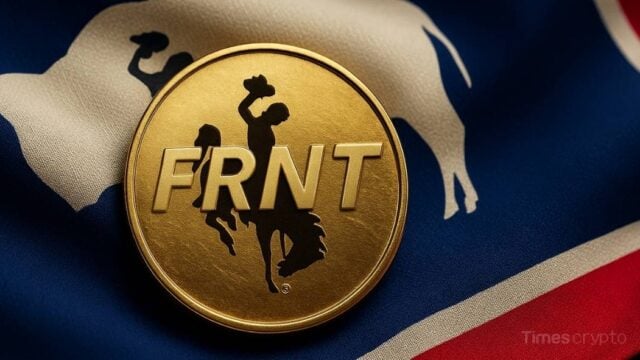Key Takeaways:
- JPMorgan, BofA, Citigroup, and Wells Fargo are exploring a joint stablecoin to streamline payments and counter crypto-native competitors.
- Centralized Finance (CeFi) giants like PayPal, Visa, and Mastercard are already deep into stablecoin integrations.
- The GENIUS Act’s advancement in the U.S. Senate signals increasing regulatory readiness for stablecoin adoption.
JPMorgan Chase, Bank of America, Citigroup, and Wells Fargo are reportedly in early discussions to develop a joint stablecoin, aiming to modernize payments and compete with crypto-native platforms.
According to a report by The Wall Street Journal, the initiative involves a collaborative approach among these banking giants to issue a stablecoin—a digital currency pegged to a fiat currency like the U.S. dollar.
Entities such as Early Warning Services, the operator of Zelle, and The Clearing House, which facilitates real-time payments between banks, are also involved.
Among the models being explored is one that would allow other banks, beyond the founding members, to use the stablecoin, potentially broadening its adoption across the financial sector.
The discussions are still at a conceptual stage, and any progress will depend on evolving regulatory developments and market demand.
Stablecoin Trend Sweeps Through CeFi and DeFi Sectors
The centralized finance (CeFi) sector is undergoing a noticeable shift, as major financial institutions and fintechs dive into stablecoin projects, not just to make transactions faster and smoother, especially across borders, but also to keep up with the rising momentum of decentralized platforms.
PayPal was among the first movers, launching its U.S. dollar-pegged stablecoin, PYUSD, in August 2023 to streamline digital payments within its ecosystem. Visa has since followed suit, integrating USDC into its payment rails and expanding the reach of stablecoin-linked cards through partnerships with fintech startups like Bridge.
Mastercard has also stepped into the space, teaming up with MoonPay to support spending stablecoins at over 150 million global locations and rolling out Mastercard-branded cards tied to digital currency balances.
Furthermore, fintech firm Revolut is developing its own euro-backed stablecoin to support everyday transactions, while Robinhood, in collaboration with firms like Kraken and Galaxy Digital, has unveiled a joint stablecoin pegged to the dollar.
On the international front, stablecoin momentum has reached the Middle East.
Earlier this month, International Holding Company (IHC), Abu Dhabi Developmental Holding Company (ADQ), and First Abu Dhabi Bank (FAB) announced plans to issue a Dirham-backed stablecoin, pending regulatory approval from the Central Bank of the UAE (CBUAE).
Perfect Timing: Stablecoin Projects Align with U.S. Policy Moves
The timing of these initiatives appears strategic, as regulatory developments accelerate across global markets.
Most notably, in the U.S., lawmakers are making progress toward establishing clearer rules for digital assets, an essential foundation for the broader adoption of stablecoins.
On Monday, the U.S. Senate voted 66-32 to advance the GENIUS Act, a bipartisan bill that would create the nation’s first regulatory framework for stablecoins.
This move comes just two weeks after the proposal was blocked by a united Democratic front, signaling a potential turning point in stablecoin oversight and institutional adoption.
Read more: Texas House Approves Bill to Establish Bitcoin Reserve







